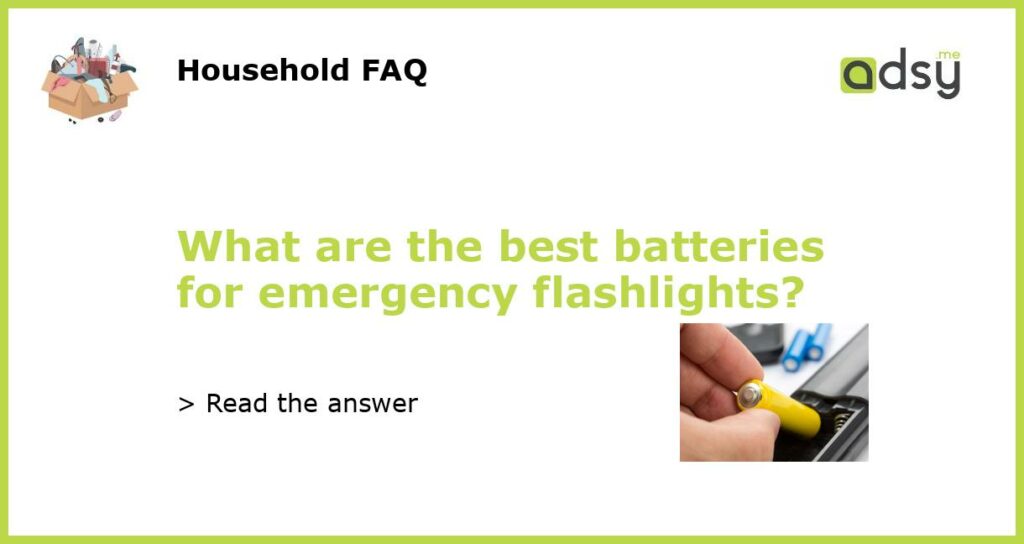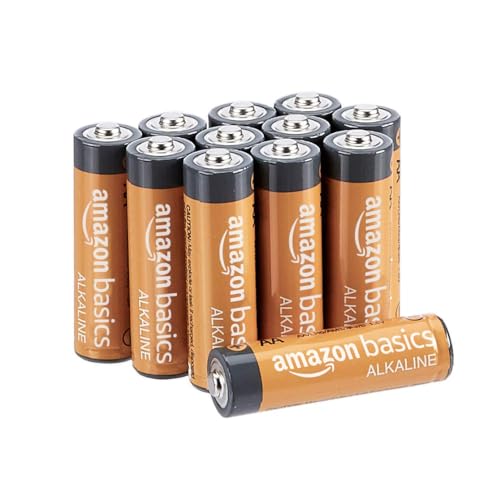The Importance of Emergency Flashlights
In emergency situations, having a reliable flashlight can be a lifesaver. Whether it’s a power outage, natural disaster, or any other unforeseen event, emergency flashlights provide essential lighting when all other sources fail. However, the effectiveness of these flashlights heavily relies on the type of batteries they use.
Different Types of Batteries
There are various types of batteries available on the market, each with its own advantages and limitations. When it comes to emergency flashlights, the most common battery types are alkaline, lithium-ion (Li-ion), nickel-metal hydride (NiMH), and rechargeable batteries. Each of these batteries has different power outputs and durations, making them suitable for different emergency scenarios.
Alkaline Batteries: A Reliable Choice
Alkaline batteries have long been a popular choice for emergency flashlights. They are widely available, affordable, and have a relatively long shelf life, making them ideal for situations where flashlights may sit unused for extended periods. Alkaline batteries also provide a consistent power output throughout their usage cycle, ensuring reliable illumination when needed.
However, one downside of alkaline batteries is that they tend to drain quickly when used in high-powered devices like flashlights. Their energy output declines as the battery drains, resulting in dimmer light towards the end of their life. Despite this drawback, alkaline batteries remain a dependable choice for emergency flashlights.
Lithium-ion Batteries: The Powerhouse
Lithium-ion batteries are another excellent option for emergency flashlights. They are known for their high energy density, allowing them to provide a longer runtime compared to alkaline batteries. Furthermore, lithium-ion batteries have a longer overall lifespan and can be recharged multiple times, making them a cost-effective and environmentally friendly choice for long-term emergency preparedness.
However, it is important to note that lithium-ion batteries have a higher initial cost compared to alkaline batteries. They also require specialized battery chargers to ensure proper charging and safety. Nevertheless, the superior performance and extended lifespan of these batteries make them a top choice for individuals seeking reliable emergency illumination.
Nickel-Metal Hydride Batteries: An Eco-friendly Option
Nickel-metal hydride (NiMH) batteries are a eco-friendlier alternative to traditional alkaline batteries. They can be recharged multiple times and offer a higher energy capacity, resulting in a longer runtime for emergency flashlights. NiMH batteries also have a lower self-discharge rate than alkaline batteries, meaning they can retain their power for longer periods in storage.
While NiMH batteries are an eco-friendly choice, they do have some limitations. Their performance may decrease at low temperatures, making them less suitable for extremely cold climates. Additionally, they have a higher cost compared to alkaline batteries, but the benefit of rechargeability makes them a better long-term investment for emergency preparedness.
Rechargeable Batteries: Versatile and Convenient
Rechargeable batteries are a versatile option for emergency flashlights. They can be powered by various technologies, such as lithium-ion or NiMH, and offer the convenience of being able to recharge them whenever needed. This eliminates the hassle of constantly buying and disposing of single-use batteries.
Rechargeable batteries have a higher upfront cost compared to disposable batteries but can save money in the long run. They are also more environmentally friendly, reducing waste and pollution. However, it is important to regularly recharge them to ensure they are ready for use in emergency situations.
Consider Your Needs
When choosing the best batteries for emergency flashlights, it’s essential to consider your specific needs and circumstances. Alkaline batteries are a reliable and affordable choice for short-term emergencies, while lithium-ion batteries offer superior performance and longer-lasting power. NiMH batteries are an eco-friendly option, and rechargeable batteries provide convenience and long-term cost savings. Each type has its own advantages and limitations, so it is important to assess your needs and choose the batteries that best meet them.






